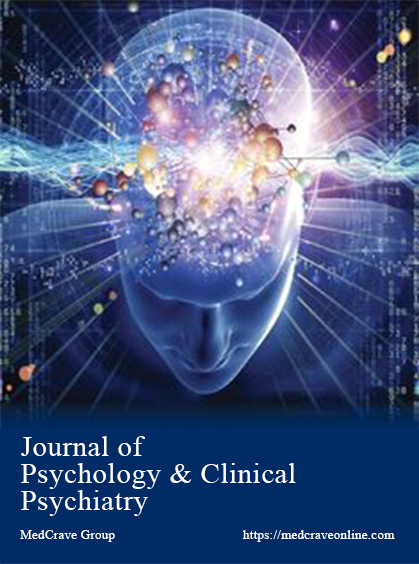Food for thought: change in ego-dystonicity and fear of self in bulimia nervosa over the course of inference based treatment
Food for thought: change in ego-dystonicity and fear of self in bulimia nervosa over the course of inference based treatment
Author(s): Magali Purcell Lalonde, Kieron O ConnorSubject(s): Cognitive Psychology, Behaviorism, Health and medicine and law
Published by: MedCrave Group Kft.
Keywords: ego-dystonicity; bulimia nervosa; cognitive therapy; fear of self; inferencebased therapy;
Summary/Abstract: Degree of ego-dystonicity in obsessions is clinically relevant to the conceptualization and treatment of eating disorders (EDs). Obsessive-Compulsive Disorder (OCD) research has suggested that the transformation of intrusive thoughts into obsessions is linked to the degree to which intrusive thoughts threaten core perceptions of the self. Given the recognized overlap between EDs, particularly anorexia and bulimia nervosa (BN), and OCD in phenomenology and psychological characteristics, a 24-week cognitive inferencebased therapy (IBT) program shown to be effective in treating OCD was adapted to treat EDs. This study explores the change in a. ED symptom severity, b. The degree of ego-dystonicity in obsessions, and c. Fear of self, motivational, mood and anxiety measures from pre-IBT to six-month follow-up. Changes in ego-dystonicity, fear of self, ED symptoms and motivational stage were assessed in 15 women with BN over the course of IBT and at follow-up. Clinical implications are discussed.
Journal: Journal of Psychology & Clinical Psychiatry
- Issue Year: 3/2015
- Issue No: 3
- Page Range: 1-9
- Page Count: 9
- Language: English

